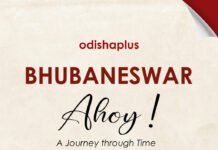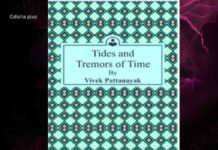Manas Ranjan Mahapatra
When I joined NBT way back in 1990, we didn’t have our own building. NBT was functioning those days in a rented building at Green Park.
One day I met the famous authors Kamleshwar and Rajendra Yadav there. They came to meet Ramesh Bakshi, our Hindi Editor there.

Later, I understood that they were once the pioneers of Nayee Kahani Movement in Hindi Literature. Ramesh Bakshi authored the story of Devyani Ka Kahna Hai and the film 37 Down and he was one of the major authors of India those days. Unfortunately, he suffered an untimely death.

Why such trendsetter creative artists didn’t reach a higher position in any government controlled cultural organization like NBT and Sahitya Akademi later, I don’t understand. I was a known author when I joined NBT, but couldn’t reach the top.
Today I fondly recollect my days with Ramesh Bakshi. He was a great person, but didn’t have a sound conjugal life. He was from Madhya Pradesh and had his MA degree in Hindi Literature and Language from Sagar University.
During his early days as an editor at Calcutta, he came in contact with Subhas Mukhopadhyay and Bishnu Dey, his contemporaries in Bangla literature. Later, he came to Allahabad and from there to Delhi to join NBT as an editor on the invitation of the then Chairman of NBT, retired ICS AL Dais who knew him during his tenure as Governor, West Bengal.
It is difficult to serve both your art and your bosses. Ramesh Bakshi became Chief Editor of NBT, but was soon reverted to the position of an editor. But he also began the historical series of books under the name Adan Pradan.
He also began another new series of books Young India Library in NBT in late 1960s. Nehru Bal Pustakalay, the most popular children’s books series also began at the same time with Mohini Rao as its Editor who came from CBT, the first children’s book publisher in India.
Copy Editing became a profession in the world in the mid of nineteenth century when publishing houses began in London and Paris. In India, Rabindranath Tagore and Premchand were the first copy editors, but copy editing was not their profession. Ramesh Bakshi was the first professional copy editor of India from his days at Calcutta, the hub of professional Indian Publishing in the post-independence period.
Ramesh Bakshi was also the first Sponsoring Editor in a government controlled publishing house in India. He got many modern classics from Indian languages translated into Hindi including Atmajeevan Charit of Fakir Mohan Senapati.
The manuscript was discovered after the death of Ramesh Bakshi and I had it copy edited it with support from Bakshi’s disciple Prithviraj Monga, who succeeded him as Hindi Editor of NBT for publication.
In fact, I learnt the skill of copy editing from Ramesh Bakshi and Arun Chakraborty, then Bangla Editor of NBT.
But, I couldn’t continue as a Language Editor cum Copy Editor in NBT. That’s another story which I will narrate sometime.
(The Author is a former editor of National Book Trust, New Delhi. Views are personal)




























